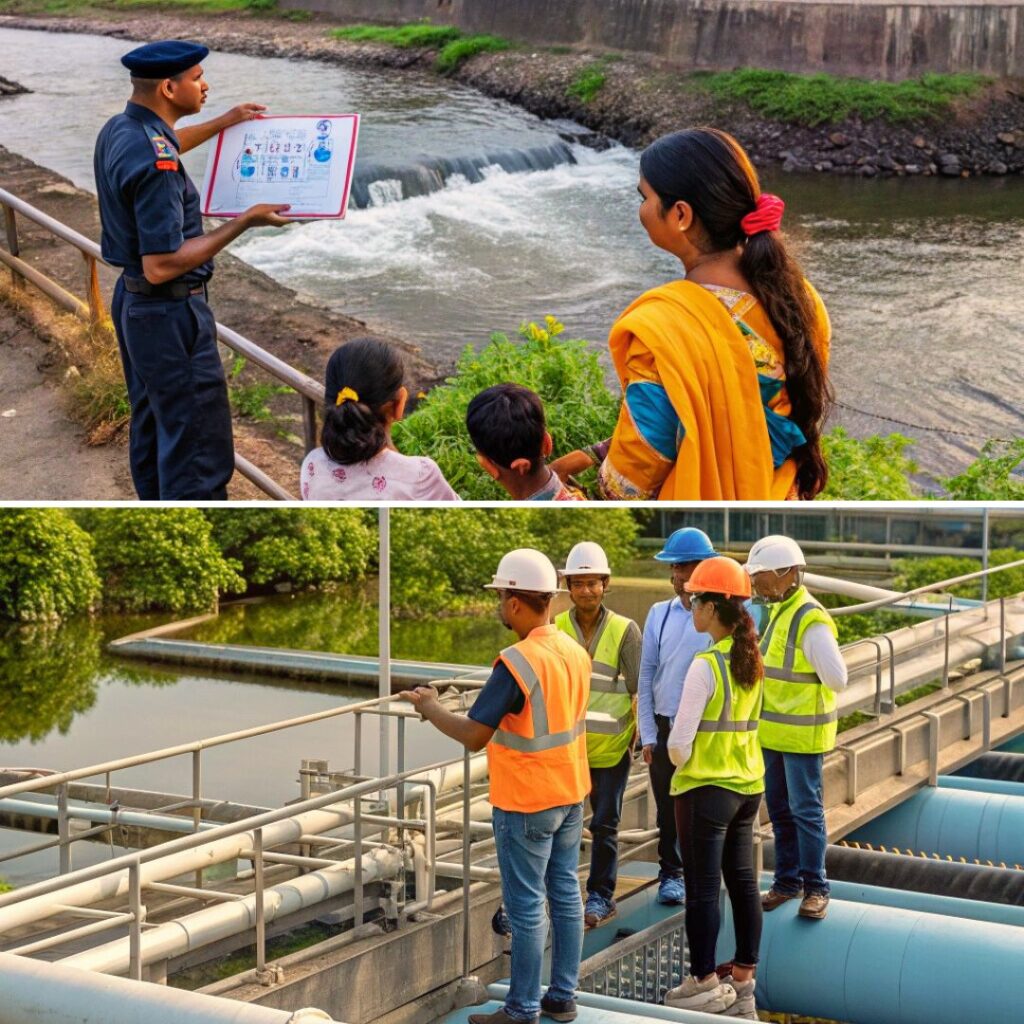“Plastics are the best, helpful and sturdy material. But the problem arises when you start generating waste out of it,” said 48-year-old Medha Tadpatrikar, the founder of Rudra environmental Solutions. She runs a Pune-based organisation which has two plants that convert plastic waste into poly fuel.
It all began when Medha and her business partner Shirish took a trip to a wildlife and were appalled by the sight of two deer who died upon consuming plastic. When The Logical Indian spoke to Medha, she said, “Like every other person, this scene was pretty disturbing. We returned home with a heavy heart, thinking that why doesn’t anybody do anything about it? After a couple of months, we decided to do something to mitigate the ever-burgeoning problem of plastic waste.” Interestingly enough, neither of them had any prior experience in the field of recycling.
Initial rocky road
A management graduate and a cost accounted began their journey seven years ago to take a positive step in order to create a change. “It took us some time and a lot of patient research to figure out how to initiate the process of recycling. We began with a pan and then moved gradually to set up a full-fledged industrial unit. This entire process has been based on several trials-errors and extensive research,” Medha said.
Plastic is basically made from crude oil. Medha and her partner decided to reverse the process. This way plastic will no longer end up in landfills and harm the environment. Plastic will no longer be consumed by animals and will not lead to the death of these animals by choking on it. It all began with melting plastic in a pan and later in a pressure cooker, which eventually burst.
This gradually led them to incorporate a few tubes to channelise the gas, which emitted from the process. Soon enough the duo realised that this process is only emitting smoke and is, in turn, polluting the environment. 2 years later, the duo began the process with fresh vigour to turn the waste into fuel, gas sludge. By then they had gathered some technical knowledge and money to fund their venture.
People bringing in their plastic waste from far-flung places
Their learning had to start right from the scratch and finally in 2010 with help from some of their friends, they had a running machine. Initially, Medha used her own car to go from home to home in order to collect their plastic waste.
Founders of the organisation, Medha and her partner, collecting plastic waste
Medha and her team have designed, developed and manufactured the machines in the Rudra’s plants. The machines produce poly-fuel utilising the process of pyrolysis, that is decomposition of condensed substances by heating. In 2014, they manufactured a third and far more improved model, which is currently in use.
Recycle and Reuse
By the end of 2014, they realised that a tangible solution was developed but it was of no use if people did not turn up and give up the plastic waste. Medha says, “This was a point when we shifted our focus to creating awareness about the harmful effects of plastic and how everyone could do their bit by only segregating the waste.” Her team started handing out recycled plastic bags to people and asked them to put their waste in these plastic bags which her team would collect at regular intervals. Their effort has grown multiple folds where her team collected wastes from 15,000 households in Pune. With a hint of pride in her voice, she says, “over the last three years, our firm has collected over 200 metric tonnes of plastic waste.”
Medha generating awareness among children
What do they do with the do with the plastic waste? The waste is first collected in a reactor and a catalyst is added to it. The process is an anaerobic system and it heats the plastic. At 150 degree Celsius, the machine begins emitting gases like propane, methane etc. These gases are captured and used a source to heat the machine during the next recycle cycle to heat the machine. Remaining gases are then condensed and turned into fuel. Every 100 kilograms of plastic emanates around 45-65 litres of fuels.
What happens to the fuel? The organisation has tied up with a few villages who use this fuel for their extensive fuel needs. The fuel is sold at a cheaper price and they can use it to heat furnaces, stoves in agricultural farms. The poly fuel is a mixture of kerosene and petrol and has a very high calorific value. They have connected with the womenfolk of these villages and owing to the high calorific value of this fuel, it lasts longer and does not cause harm to the environment, unlike burning wood or plastic.
Medha says, “People from far and wide even send us their plastic water through courier. Once people are sufficiently aware of the harmful effects of plastic waste, they have begun to come up and take the initiative of segregating plastic waste and sending it to us.” This is an amazing solution for Pune citize…











